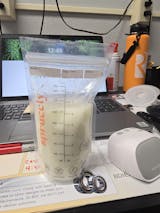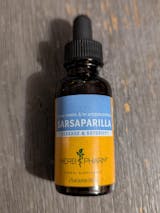Red clover is a common plant often seen growing in meadows, along roadsides, and in backyards. While some would call it a weed, red clover actually has many uses and benefits.
Farmers use it as a cover crop or as food for their livestock. Gardeners will sometimes use it as a ground cover, and bees especially love it. Herbalists are well aware of the many medicinal benefits of red clover and use it often in remedies.
Here is more about this unassuming pink herb and the surprising health benefits of red clover.
What Is Red Clover?
Red clover (Trifolium pratense) belongs to the legume family. It's originally native to Europe, North Africa, and central Asia but is now spread across many regions of the world.
Like other legumes, red clover can fix nitrogen in the soil and help to repair damaged soils, which is why farmers love it. It has also been used for centuries as medicine, especially for skin conditions and respiratory issues. (1)
While the leaf of the plant can be used in herbal medicine, the flowering top is the most beneficial and most used part.
When harvesting red clover flowers, look for bright red or pink blossoms, not brown. If you are buying the dried herb, it should still have a pinkish color to it.

Nutritional Benefits of Red Clover
One of the reasons red clover has such a wide range of health benefits is because of its nutritional profile.
It has many easily assimilated nutrients including calcium, beta-carotene, magnesium, manganese, zinc, copper, selenium, phosphorus, and potassium.
Red clover also contains vitamin C and several B vitamins.
All of these nutrients make it "one of nature's best vitamin and mineral supplements" according to herbalist Rosemary Gladstar. (Gladstar. Medicinal Herbs: A Beginner’s Guide, pg. 193)
Red clover can be used to make a tea by itself or with other nutritive herbs to help with nutrient deficiencies.
Hormone Imbalances
Along with all its nutrients, red clover contains compounds called isoflavones.
Isoflavones are a type of phytoestrogen, which can act similarly to estrogen in the body.
How exactly isoflavones work in the body is still unknown, but they can be beneficial for hormone imbalances.
One theory is that isoflavones bind to estrogen receptor sites and prevent estradiol and excess estrogen from accumulating. (Gladstar, pg. 194)
This effect is one of the reasons red clover features in herbal blends to balance hormones and enhance fertility.
If you could use either of those, try this Fertili-Tea blend featuring red clover and red raspberry leaf for bringing hormones back in balance.
Menopausal Symptoms and Bone Loss
One of the most traditional uses for red clover is to help relieve menopausal symptoms.
The phytoestrogens (isoflavones) in red clover are the main reason for this, helping to bring hormones back in balance.
Herbalists use it to help with hot flashes, mood swings, and night sweats in particular.
Most of the scientific research done on red clover and menopause symptoms has used commercially prepared red clover isoflavones rather than the entire herb itself.
It's hard to get a good picture from these studies of how beneficial the actual herb can be for menopause, but some studies have confirmed the positive benefits of red clover for menopausal symptoms. (2)
Red clover also has the potential to help reduce the loss of bone density because of its phytoestrogen content. (3)
One study using a red clover derived supplement found that women taking the supplement had significantly less bone density loss than the placebo group. (4)
Skin Problems
Another traditional use of red clover is to support healthy skin and to help with conditions like eczema, psoriasis, and skin irritations.
It can be used to make a skin wash that is used externally to soothe skin.
But many of red clover's benefits for skin come from its cleansing effects on the blood and lymphatic system. (Gladstar, pg. 193)
These purifying properties help to rid the body and blood of wastes and toxins that may be causing skin conditions. (1)
A tea made with red clover (sometimes combined with nettle leaf or yellow dock) can be taken regularly to support skin health. Or you can try taking it in a detox herbal tea or a detox extract to help cleanse toxins out of your body that may be causing skin issues.
Respiratory Aid
Yet another traditional use for red clover is as a respiratory aid.
Rosemary Gladstar uses it as a favorite herb for treating respiratory problems in children and for restoring health to the body after an infection. (Gladstar, pg. 193)
Its antispasmodic properties and action as a mild sedative is the reason why it has been used for everything from coughs and bronchitis to asthma. (5)
Other Benefits of Red Clover
The list of healing benefits of red clover goes on.
Its hormone balancing properties make it beneficial for relieving problematic menstrual symptoms and also for enhancing libido.
Early research also shows that the isoflavones in red clover may help to prevent certain cancers and have an antitumor effect. (6)
It can also be used to clear lymphatic congestion and can provide overall immune support because of its many nutrients and active compounds.
Using Red Clover
While red clover is available as a supplement and extract, it's most often used in herbal medicine as a tea.
If you wish to buy it already harvested and dried, be sure the red clover you buy has not been sprayed with any chemicals and is still a shade of red or pink.
(Brown blossoms mean it has lost most of the nutrients and beneficial compounds.)

Simple Red Clover Tea:
- Use 1-3 teaspoons of dried red clover for every cup of hot water
- Pour the water over the dried herb and let it steep for at least 15 minutes
- Strain out the red clover and sweeten if desired
- Drink 3 cups daily for best results
You may also wish to use red clover in a blend with other herbs to increase its effects.
Side Effects and Precautions
Red clover is a very safe herb to use, even for a long period of time.
However, the phytoestrogens in red clover mean that it should be avoided by those with hormone or estrogen-sensitive cancers or any other hormone-sensitive conditions.
Red clover also has blood-thinning properties and should not be taken with other blood thinners and some heart medications.
You will also want to stop taking it 2 weeks prior to any surgery.
Red clover is typically not recommended to be taken during pregnancy.
Discover the Benefits of Red Clover Yourself
Whether you want to use red clover to replenish your body's nutrient supply or to balance hormones, there are many health benefits to this gentle herb.
Red clover has been used in herbal medicine for centuries and is still going strong today.
Try it out as a tea or in a blend to discover its benefits for yourself!
Disclaimer: This post is for informational purposes only. It does not constitute medical advice and should not be substituted for medical advice. Please consult your health care provider, herbalist, midwife, or naturopathic physician before taking herbs, supplements, etc. Here's the link to our full disclaimer.




























































































































































































